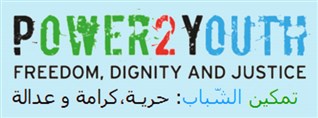Lebanese Youth and Political Mobilization
Lebanon's Case Study
As the PI of Lebanon, Mona Harb contributed to work on the institutional/policy, organizational, and individual factors of exclusion and inclusion of youth. Three working papers were produced:
- A working paper titled Assessing Youth Exclusion through Discourse and Policy Analysis analyzing the macro-level factors of exclusion/inclusion, with a focus on civic/political life
- A working paper, entitled Youth Mobilization in Lebanon: Navigating Exclusion and Seeds for Collective Action discussing the meso-level dimensions of exclusion/inclusion, and investigating organizational factors and the role of youth-organized collective agency,
- A working paper co-authored by Mohammad Diab, Sami Atallah and Mona Harb, entitled Who are Lebanese Youth? A Segmentation-Based Approach, examining the results of the Power2Youth-led survey on 1,000 Lebanese youth and discussing the individual level factors that foster or constrain the participation of young men and women to political and civic life.
In addition, two journal articles were published:
- Harb, Mona, "New Forms of Youth Activism in Contested Cities: The Case of Beirut", in The International Spectator (Vol 53, 2), 2018, is based on the findings of the second P2Youth working paper, summarizes some of the key findings of the Power2Youth project on Lebanon.
- Harb, Mona, Sami Atallah and Mohamad Diab, "Using the Clustering Method for a Heterogenous Reading of Lebanese Youth", in Mediterranean Politics (published online), 2020, lays down the adopted methodology for the case study.
A short essay was also published on the theme by the University of Amsterdam’s Center for Urban Studies blog, University of Amsterdam, entitled “Urban Activism in Oligarchies and Opportunities for Political Change: Beirut as Case Study.

POWER2YOUTH was funded under the European Union’s 7th Framework Programme (2014-17) to (1) explore the root causes and complex dynamics of youth exclusion and inclusion in the labour market and civic/political life; (2) investigate the potentially transformative effect of youth agency and (3) develop progressive and youth-informed policy guidelines for national and supranational policy-makers. The project engaged 13 partner institutions from Europe and the South-East Mediterranean region, including 6 case study countries (Morocco, Tunisia, Egypt, Lebanon, Occupied Palestinian Territories and Turkey), where original qualitative and quantitative data was collected from a range of sources (e.g. public statistics, public documents and academic studies, focus groups and interviews with young people and youth-based CSOs, and large-scale nation-wide surveys including a total of 7,573 young people between the ages of 15 and 29).Thumbnail image: Protesters take down and cross a fence blocking access to Dalieh El Raoucheh in Beirut (Photo: Habib Battah/The Beirut Report, 2015)